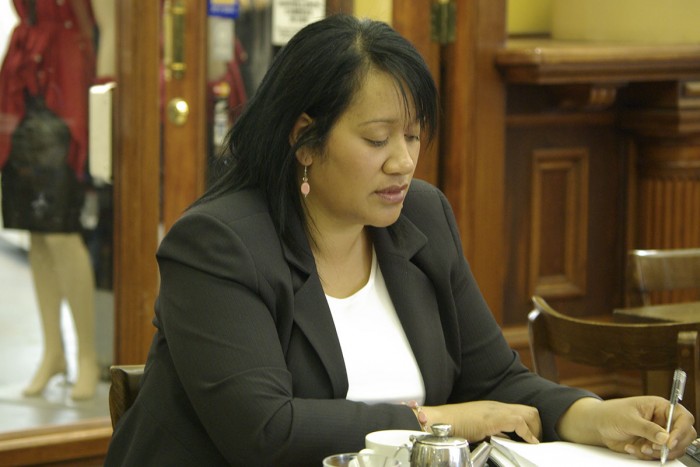Recruitment Consultant
Kaitohutohu Whiwhi Kaimahi
Alternative titles for this job
Recruitment consultants help match people with jobs. They work with candidates (people looking for work) and clients (employers looking for staff).
Pay
Recruitment consultants with one to five years’ experience usually earn
$49K-$90K per year
Recruitment managers usually earn
$80K-$130K per year
Source: Madison Recruitment, Niche Recruitment and OneStaff, 2018.
Job opportunities
Pay
Pay for recruitment consultants is a combination of a base salary and commission.
- Recruitment consultants' base salaries are usually between minimum wage and $90,000 a year.
- Recruitment managers' base salaries are usually between $80,000 and $130,000.
Base salaries for recruitment consultants and recruitment managers may be higher in some regions.
The amount of commission earned depends on the employer and individual performance. It is possible for consultants to earn as much as their base salary in commission.
Sources: Madison Recruitment, 2018; Niche Recruitment, 2018; and OneStaff, 2018.
- PAYE.net.nz website - use this calculator to convert pay and salary information
- Employment New Zealand website - information about minimum wage rates
(This information is a guide only. Find out more about the sources of our pay information)
What you will do
Recruitment consultants may do some or all of the following:
- establish and build relationships with clients
- help job candidates identify job vacancies that match their skills
- advertise job vacancies on internet sites and social media channels
- find potential candidates for jobs
- interview, screen and test candidates
- help candidates to update their CVs and prepare for interviews
- negotiate salaries and contracts for candidates
- advise clients and candidates on labour market trends and salaries.
Skills and knowledge
Recruitment consultants need to have:
- an understanding of the needs of a range of businesses, and how they work
- sales and marketing skills
- strong knowledge of business concepts such as business models, strategy, and planning
- a good understanding of employment legislation
- good writing skills for updating CVs and completing reports.
Working conditions
Recruitment consultants:
- usually work regular business hours, but may also work evenings and weekends to meet deadlines
- work in offices
- may travel locally to clients' workplaces, or nationally if part of a large agency.
What's the job really like?

Lauren Mouton
Recruitment Consultant
Lauren Mouton first approached Madison Recruitment about temporary work after coming back from her OE. Within the space of two years, Lauren has worked her way up from being an entry-level recruitment consultant to a team leader, and one of the company’s highest-achieving employees.
What does your job involve?
"We do both temporary and permanent recruiting. Temporary recruiting is really fast-paced. You could have a client call you at 8am needing a temp that day, so then you’re running around like a crazy person trying to find someone.
"With permanent recruitment, that’s where you actually get to know someone quite well because the process is so much longer and more in-depth. You could be working with someone for over a month so you get to build up a really good connection with them."
What do you enjoy most about your work?
"Helping people is a real passion of mine. Let’s say someone has been made redundant or they’re out of work through no fault of their own, or else a family member has got sick and they’ve had to take a career break – those are the people that I really love to help."
What skills do you think are crucial for a recruitment consultant?
"Listening and people skills are important to have as a recruitment consultant – listening especially. You need to have compassion for people as well.
"You’ve also got to be willing to put in the hard work – there are no shortcuts."
Entry requirements
There are no specific entry requirements to become a recruitment consultant. However, a tertiary qualification in business, finance, or law, such as a Bachelor of Business Studies or Bachelor of Laws, may be useful.
Secondary education
There are no specific secondary education requirements for this job, but business studies, maths, and English are useful.
Personal requirements
Recruitment consultants need to be:
- strong communicators
- good listeners
- skilled at networking and relationship management
- skilled organisers
- resilient and able to bounce back from setbacks
- quick and efficient, with an eye for detail
- results-focused and goal-oriented
- able to work well under pressure and unsupervised
- friendly, with a positive attitude.
Listening and people skills are important to have as a recruitment consultant – listening especially.

Lauren Mouton
Recruitment Consultant
Useful experience
Useful experience for recruitment consultants includes
- work in human resources
- sales
- marketing
- retail work
- customer service work.
Find out more about training
- Recruitment and Consulting Services Association (RSCA)
- 0800 441 904 - www.rcsa.com.au
What are the chances of getting a job?
Chances best for experienced recruitment consultants
Chances of getting a job as a recruitment consultant are best for those with experience, as they are in demand.
It's harder to secure a recruitment consultant position if you are new. Many people enter the profession by starting out in an entry-level role, such as candidate manager, before working up to a recruitment consultant position.
According to the Census, 4,500 recruitment consultants worked in New Zealand in 2018.
More job opportunities in generalist recruitment
Chances of getting a job at a generalist agency that recruits for a range of industries, and provides permanent, contract and temporary staff, are higher than at most specialist agencies.
However, opportunities for consultants who do specialist recruitment for growing industries, such as information technology and construction, are increasing.
A strong social media presence increases your chances
If you want to enter the industry, you can increase your chances by:
- having a professional, well-managed social media presence
- being able to successfully use social media tools.
This is because LinkedIn and other social networking sites are increasingly used for making contacts and recruiting.
Types of employers varied
Recruitment consultants may work for small or large agencies or franchises. They may also work in-house for businesses or government departments.
Sources
- Gerber, I, human resources adviser, Madison Recruitment, Careers Directorate – Tertiary Education Commission interview, April 2018.
- Humphrey, S, area manager, OneStaff, Careers Directorate – Tertiary Education Commission interview, April 2018.
- Stats NZ, '2018 Census Data', 2019.
- Temel, J, director, Niche Consulting Group, Careers Directorate – Tertiary Education Commission interview, April 2018.
(This information is a guide only. Find out more about the sources of our job opportunities information)
Progression and specialisations
Recruitment consultants may progress into management positions, or set up their own businesses. They may also go on to work in human resources, marketing, or sales roles.
Recruitment consultants may specialise in recruiting people for a particular industry such as:
- construction
- design
- information technology.
Last updated 28 March 2025

